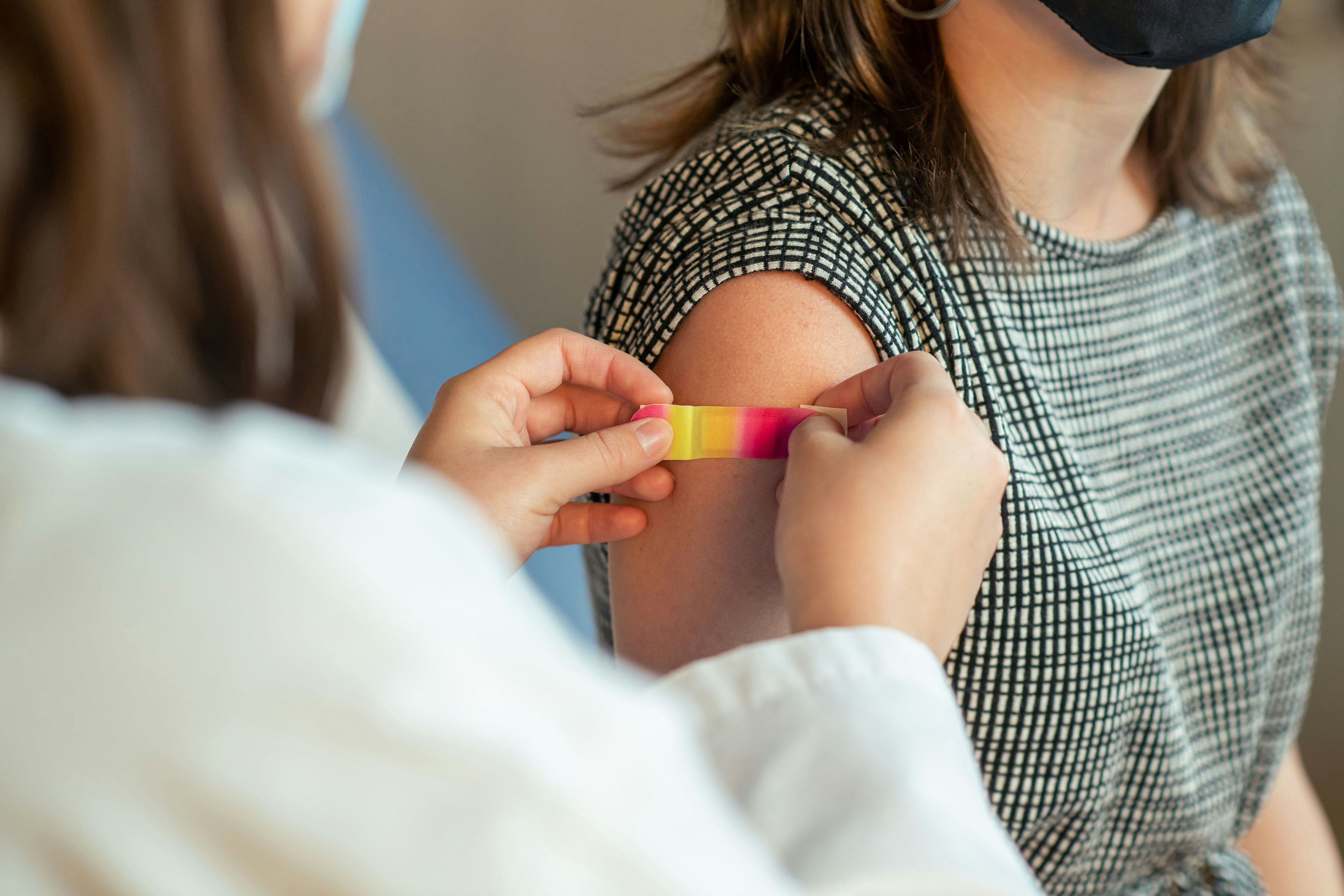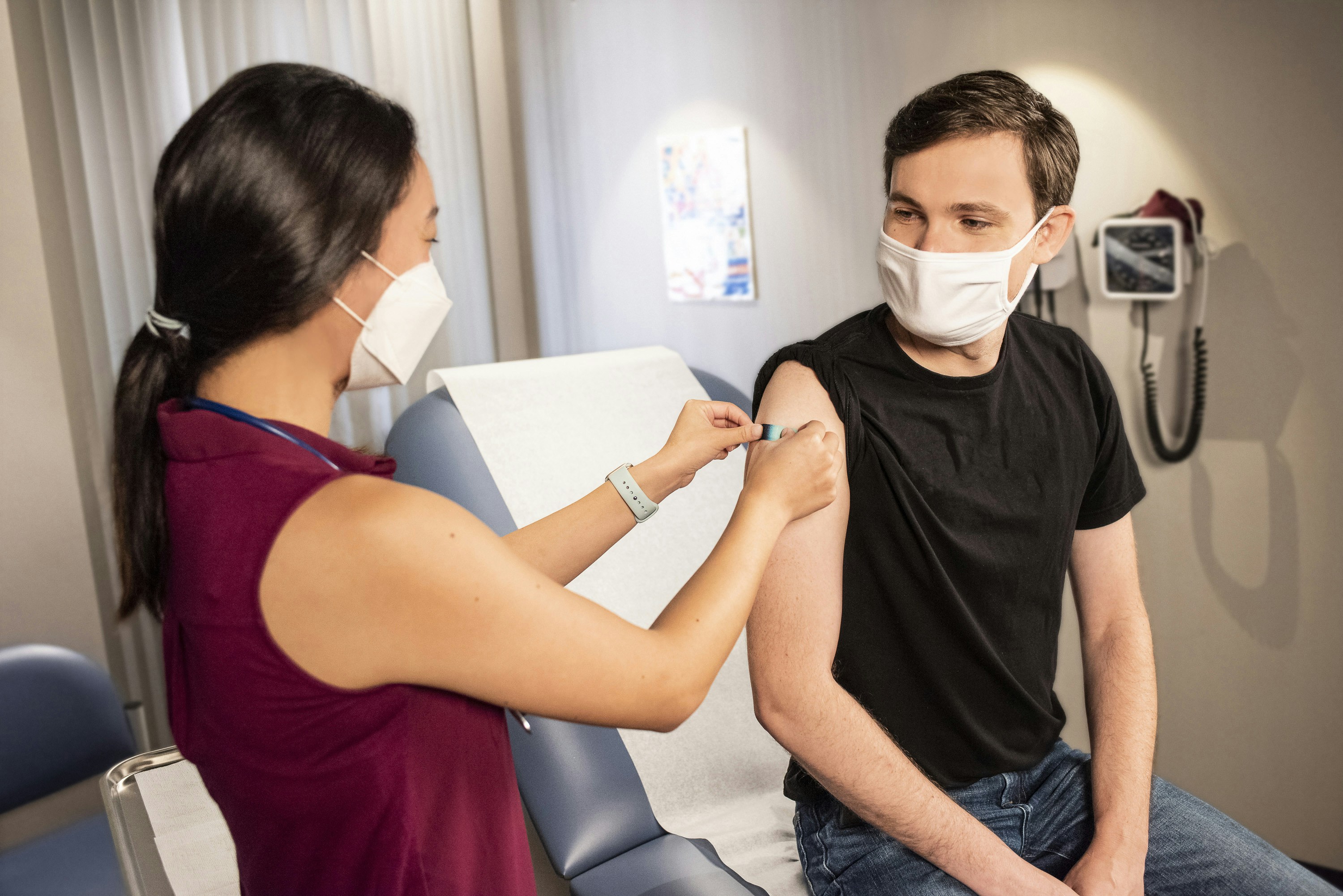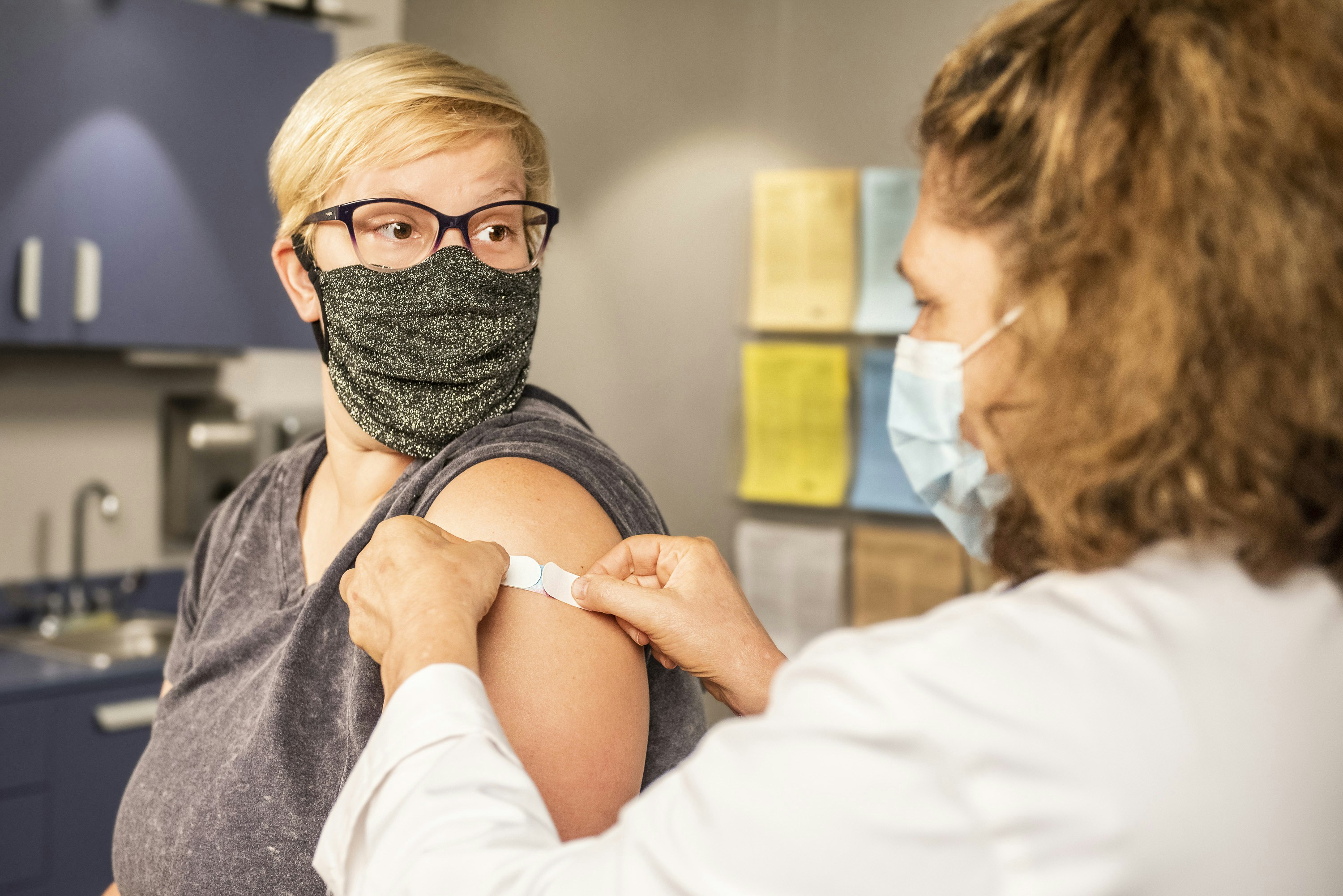We think of vaccines as protecting lungs, brains, and hearts. Surprise: some of the most devastating and permanent hearing losses are triggered by infections—and several routine vaccines dramatically lower that risk. Consider this your practical, evidence-based cheat sheet to protect your ears with the same intention you protect your teeth and vision.
The big idea: certain infections can permanently damage hearing
Viruses and bacteria can harm the ear in a few ways:
- Inner ear (cochlea) injury: Mumps, measles, and shingles can inflame or directly damage the delicate hair cells and auditory nerve, causing sudden sensorineural hearing loss (often permanent).
- Meningitis: Bacterial infections like pneumococcus or meningococcus inflame the lining of the brain. The inner ear sits just next door; inflammation and toxins can lead to profound hearing loss and even ossification (bone growth) inside the cochlea.
- Middle-ear complications: Respiratory viruses can swell the Eustachian tube and set up painful middle-ear infections (otitis media). Repeated or severe cases increase the risk of hearing problems and persistent fullness.
- Inflammation and fever: Systemic inflammation, high fever, and reduced oxygenation during severe illness can stress inner-ear tissues.
The flip side? Vaccination lowers your odds of those infections ever gaining a foothold.
The shortlist: vaccines with a clear hearing payoff
MMR (Measles-Mumps-Rubella)
Why ears care: Mumps is a leading infectious cause of sudden, often permanent, one-sided sensorineural hearing loss. Measles and rubella have also been linked to hearing impairment; congenital rubella syndrome is a classic cause of childhood deafness.
Who should consider it: Adults without evidence of immunity (no vaccination records, unsure history, or lab proof) and many international travelers benefit from MMR. Most adults in the U.S. received two doses in childhood; some settings (like universities or outbreak areas) recommend a booster.
Bottom line: Keeping MMR immunity current is a direct hedge against infection-triggered hearing loss.
Shingles (Recombinant zoster vaccine, Shingrix)
Why ears care: Shingles can strike the ear and facial nerve—this is Ramsay Hunt syndrome—causing painful blisters, facial weakness, vertigo, and sudden hearing loss. Recovery can be incomplete.
Who should consider it: Recommended for most adults 50+ and for immunocompromised adults 19+ (two doses).
Bottom line: By preventing shingles, you reduce the chance of ear-involved shingles and its hearing and balance fallout.
Influenza (flu) vaccine
Why ears care: Flu drives ear complications and sets the stage for secondary bacterial infections. In children, flu vaccination reduces ear infections; in adults, it reduces severe illness, fever, and the cascade that can lead to middle-ear trouble and inner-ear stress.
Who should consider it: Annual vaccination for nearly all adults, with formulation guided by age and health status.
Bottom line: Fewer and milder flu episodes mean fewer ear complications—and fewer opportunities for infection-related hearing hits.
Pneumococcal vaccines (PCV20, or PCV15 followed by PPSV23)
Why ears care: Pneumococcus causes invasive disease (including meningitis) that can lead to profound hearing loss. It also contributes to ear infections.
Who should consider it: Adults 65+ and younger adults with certain conditions (e.g., chronic heart/lung disease, diabetes, immunocompromise) per current guidelines.
Bottom line: Preventing pneumococcal disease lowers risks of meningitis and its severe auditory consequences.
Meningococcal vaccines (MenACWY, MenB)
Why ears care: Meningococcal meningitis can cause rapid, permanent hearing loss.
Who should consider it: Commonly recommended for teens and young adults (especially in dorms), and for adults with specific risks (e.g., asplenia, certain lab exposures, travelers to endemic regions). Your primary care clinician can help determine if you need it as an adult.
Bottom line: If you’re in a risk group, these shots are tangible hearing insurance.
Hib (Haemophilus influenzae type b)
Why ears care: Hib once caused severe meningitis and hearing loss in children; vaccination transformed that landscape. Adults with asplenia, transplant recipients, or certain medical conditions may need Hib.
Bottom line: Mostly a pediatric victory, but targeted adult doses protect those at higher risk from meningitis-linked hearing loss.
COVID-19 vaccines
Why ears care: Severe COVID-19 can trigger intense inflammation and vascular stress; some case reports note hearing and balance symptoms after infection. Large studies suggest vaccination reduces severe disease and complications.
Bottom line: There’s no definitive proof that COVID vaccination directly prevents hearing loss, but it reduces severe illness that can indirectly threaten your auditory system.
RSV vaccines (Arexvy, Abrysvo)
Why ears care: Respiratory viruses contribute to Eustachian tube dysfunction and ear infections. RSV vaccination in older adults reduces lower respiratory tract illness; pregnant vaccination protects newborns.
Bottom line: Direct hearing protection data are limited, but fewer and milder respiratory infections generally mean fewer ear complications.
How infections damage hearing (and why preventing them matters)
- Direct viral injury: Mumps and measles can invade the inner ear and auditory nerve, leading to sudden, often unilateral, sensorineural hearing loss.
- Neuritis and labyrinthitis: Viral reactivation (shingles) inflames cranial nerves and the inner ear, causing hearing loss, vertigo, and tinnitus.
- Meningitis spread: Bacterial toxins and inflammation can reach the cochlea through the inner ear fluids, sometimes prompting rapid bone formation that makes implant surgery more complex if needed later.
- Secondary attacks: Respiratory infections set up middle-ear pressure problems and bacterial superinfections that can damage the eardrum and ossicles over time.
Once inner-ear hair cells or the auditory nerve are lost, we don’t yet have reliable ways to regrow them. That’s why prevention—yes, with vaccines—belongs in your hearing health plan.
Your hearing-protective vaccine plan (talk it over with your clinician)
This is a conversation starter, not a diagnosis or prescription. Your primary care clinician or pharmacist can match vaccines to your age, health, and travel plans.
Adults 19–49
- MMR: Ensure immunity; get vaccinated if not protected.
- Influenza: Every year.
- COVID-19: Stay current per public health guidance.
- Meningococcal: If at increased risk (dorm living, certain jobs, travel, asplenia, complement deficiency).
- Hib: Consider only if high-risk (e.g., asplenia, certain transplants), per clinician guidance.
Adults 50–64
- Shingles (Shingrix): Two doses, even if you had shingles before.
- Influenza: Annually.
- COVID-19: Stay current.
- Pneumococcal: If you have certain chronic conditions; your clinician will advise on PCV20 or PCV15 plus PPSV23 timing.
- Meningococcal/Hib: If specific risk factors apply.
Adults 65+
- Pneumococcal: Recommended for most; PCV20 alone or PCV15 followed by PPSV23 per current guidelines.
- Influenza: High-dose or adjuvanted formulations may be recommended.
- Shingles: If not already completed, get the two-dose series.
- COVID-19: Stay current.
- RSV: Shared decision-making for adults 60+.
Traveling or starting a new job? Ask about meningococcal and other region- or occupation-specific vaccines.
If your ear changes during or after an illness—act fast
Don’t wait for it to "blow over" if you notice warning signs.
- Sudden hearing loss (one ear, within hours to days): Treat as urgent. Call your primary care provider or ENT the same day, and request an urgent audiology hearing test. Early treatment is tied to better outcomes.
- Severe headache, fever, stiff neck, confusion: Call emergency services—possible meningitis.
- Ear pain with facial weakness or a painful ear rash: Possible Ramsay Hunt syndrome; prompt medical care matters.
- Persistent muffled hearing or fullness after a respiratory illness: Schedule an audiology evaluation and medical check; most Eustachian issues improve, but some need treatment.
A quick hearing test with a licensed audiologist can establish a baseline and guide next steps. If you wear hearing aids, let your provider know about any sudden changes—they can help triage and coordinate care.
Practical extras that amplify vaccine benefits
- Build quiet into sick days: When you’re ill, your inner ear may be more vulnerable. Turn down the earbuds, skip power tools, and wear hearing protection for unavoidable noise.
- Hydrate, sleep, and pace yourself: Your immune system and inner ear both love oxygen and rest.
- Use meds wisely: Follow dosing for pain relievers and decongestants. If you have kidney disease or other conditions, ask your clinician or pharmacist before using new over-the-counter products.
- Keep ears dry if congested: During colds, minimize water entry into the ear canal when possible; dry ears gently after showers.
- Make it easy: Many pharmacies offer walk-in vaccines. Bring your records or smartphone wallet so your immunization history stays tidy.
Myths to leave behind
- “I’m healthy; I don’t need vaccines.” Some ear-threatening infections strike healthy adults, especially in group settings or during travel. Vaccines reduce both your risk and the risk to vulnerable people around you.
- “Vaccines cause hearing loss.” Large safety monitoring systems show that serious ear complications after vaccination are extremely rare. The infections themselves carry a far higher risk to hearing.
The take-home
Add vaccination to your hearing-protection toolkit, alongside smart noise habits and regular hearing checks. You’ll lower the odds of some of the most devastating—and preventable—causes of hearing loss. Not sure where you stand? Ask your primary care clinician or pharmacist to review your vaccine history. And if you ever notice sudden hearing changes, loop in an audiologist and an ENT promptly—your ears are worth the hustle.
Further Reading
- Pressure-Proof Your Ears: Prevent Barotrauma When You Fly, Drive High, or Dive (Prevention) - Vaccines That Protect Your Hearing: The Shots Worth Getting (Prevention) - Long COVID and Your Hearing: What We Know (and What to Do Next) (Research) - Surfer’s Ear and Cold-Water Hearing Loss: Stop Bony Growths Before They Block Your Sound (Hearing Loss)Frequently Asked Questions
Which single vaccine makes the biggest difference for adult hearing?
For adults 50+, the shingles vaccine (Shingrix) stands out because it prevents shingles that can affect the ear and facial nerve (Ramsay Hunt syndrome), a known cause of sudden hearing loss and vertigo. Broadly, staying immune to mumps and measles via MMR also matters at any age if you’re not already protected.
I had mumps as a kid. Should I still get MMR?
If you have documented, complete MMR vaccination or lab evidence of immunity, you may not need an additional dose. If your records are unclear or you’re in a higher-risk setting (like university campuses or certain travel destinations), your clinician may recommend MMR. Your primary care provider or pharmacist can check current guidelines and your history.
Can vaccines cause tinnitus or hearing loss?
Serious ear-related side effects after vaccines are rare. In contrast, infections like mumps, measles, shingles, and bacterial meningitis carry well-documented, much higher risks of permanent hearing loss. If you notice new ear symptoms after any illness or vaccination, contact your clinician, and consider a hearing test with an audiologist.
I’m 65 and wear hearing aids. Do these vaccines still help me?
Yes. Preventing shingles, influenza, pneumococcal disease, and severe COVID-19 reduces the chance of new ear damage and complications that can make hearing harder—even with hearing aids. Ask about pneumococcal, shingles, influenza, RSV (shared decision-making for 60+), and staying current on COVID-19 boosters.



